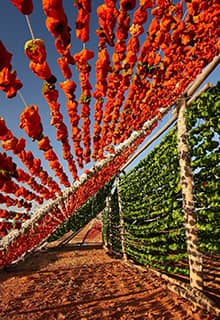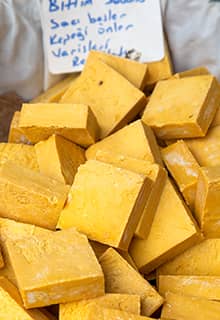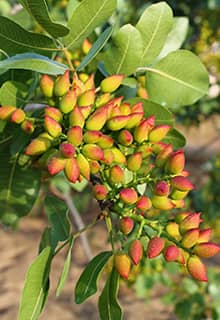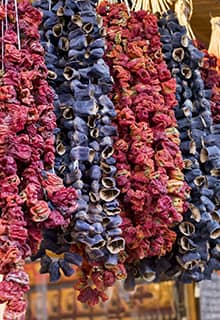

smell
South Eastern Türkiye
Euphrates River in Diyarbakır, Adıyaman, Gaziantep and Şanlıurfa
The Euphrates River, as well as the neighbouring Tigris River, played an essential role in the development of the civilizations that started in Mesopotamia and marked the beginning of history.
Sumer, Assyria, Babylon gave way to Persia and to the different dynasties that ruled there. Probably none of this would have been possible without the fertilization of those lands that was caused (and still is) by these rivers.
With a length of 2800 km, the Euphrates is the longest river in Western Asia, crossing Iraq, Syria, and Türkiye, but its river basin extends to other countries, such as Saudi Arabia and Iran.
On its banks are some of the oldest cities of the region and a traveller will surely come across its winding waters several times.
The river collects most of its water from rainfall and the defrost that happens at the end of each winter, reaching maximum flow in April and May. It rises in two places, both in Eastern Anatolia, and ends at the Persian Gulf in Shatt al-Arab, Iraq, after having merged with the Tigris.
Tigris River in Diyarbakır, Batman, Mardin and Şırnak
The Tigris River is born in Türkiye and crosses into Iraqi territory, where it merges with the Euphrates and spills into the Persian Gulf in Şattülarap. It runs from Türkiye to Iraq and Syria, has revived many civilizations throughout history.
The river receives its main resources from the mountains of the Eastern Anatolia and the Hazar Lake. The length of the river on Turkish territory is 523 km. It passes through the cities of Diyarbakır, Batman, Mardin and Şırnak in Southeastern Anatolia.
The Tigris is one of the rivers that made up the old Mesopotamia border. Its length is shorter than the Euphrates, but its water is more than the Euphrates.
It is understood from the historical ruins that these rivers are much utilized in terms of transportation.
The waters of the Tigris River diminish towards the end of summer. In April, with the melting of the snow, the waters multiply, reaching the highest level.
The Pool of Abraham (Balıklı Göl) in Şanlıurfa
The Pool of Abraham, one of the most visited places of Şanlıurfa, has an important place in the history of religion. Here fire was turned into water and burning coals into fish to protect the Prophet Abraham. The story goes that Abraham rebelled against King Nimrod, and as a punishment Nimrod threw Abraham from Urfa Castle into the fire he built below. However, Abraham didn’t burn. Instead, the flames became water, and the burning coals were turned into fish by God. Balıklı Göl is this place in this story. Hence, the fish here are believed to be sacred. Because of its natural beauty and in terms of its religious significance, The Pool of Abraham is one of the places you should see.
City Walls and the Hevsel Gardens in Diyarbakır
Located on an escarpment of the Upper Tigris (Dicle) River Basin, the fortified city of Diyarbakır and the landscape around bearing the traces of several civilizations throughout the history has been inscribed on the UNESCO World Heritage List in 2015. The site encompasses the Amida Mound, known as İçkale (inner castle), the six km-long city walls of Diyarbakır with their numerous towers, gates, buttresses, and 63 inscriptions from different periods, as well as Hevsel Gardens, a green link between the city and the Tigris that supplied the city with food and water.
Gölbaşı Lake in Adıyaman
Gölbaşı Lake, which gave its name to Gölbaşı District, is in the district center. Gölbaşı Lake surrounding, which is also registered as a Natural Protected Area; bird sanctuary, recreation areas and travel tracks, have been created for its visitors.
Dülükbaba Natural Park and Biological Pond in Gaziantep
The area is one of the largest hand-planted timber forests of Türkiye, there are hiking and mountain biking trails, as well as camping and caravan-accommodations.
Offering a unique view of Gaziantep under the scent and shade of different tree species such as red pine, larch, cypress, oak, and almond, the park also hosts the Dülük Ancient City, one of the oldest settlements in the world.








